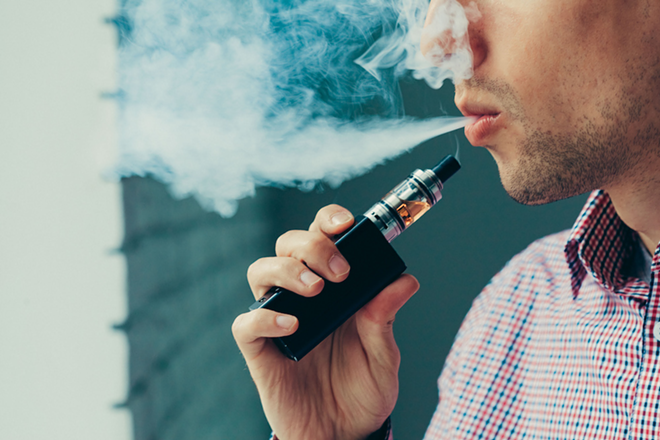A state appeals court Tuesday upheld a verdict of more than $2 million in a case involving an electronic cigarette that exploded and caused damage to a man’s teeth. A three-judge panel of the 1st District Court of Appeal rejected arguments by R-L Sales, LLC, which sold a lithium ion battery used in the electronic cigarette.
The Alachua County case was filed by J. Michael Hoce against companies that made and sold the electronic cigarette and components, including R-L Sales.
At the time of trial, R-L Sales was the only remaining defendant and was found at fault by a jury, according to Tuesday’s ruling by a three-judge panel of the 1st District Court of Appeal. The jury awarded $48,000 for medical expenses and $2 million in pain-and-suffering damages for Hoce, who had several teeth damaged in the e-cigarette explosion.
In the appeal, R-L Sales argued, in part, that the trial judge should have allowed it to introduce evidence that Hoce used methamphetamine that had damaged his teeth. But the appeals court turned down the argument. “Although the fact that appellee (Hoce) already had extensive dental problems was relevant to the jury’s determination of the extent of damages attributable to the e-cigarette explosion, the cause of appellee’s preexisting dental problems --- i.e., whether it was meth use, too many sugary drinks, or simply extremely poor dental hygiene --- was not relevant to any issue the jury had to decide,” said the ruling by Chief Judge Stephanie Ray and judges Clay Roberts and T. Kent Wetherell.
“Moreover, because evidence of illegal drug use is inherently prejudicial, even if the cause of appellee’s preexisting dental problems had some marginal relevance, the probative value of the evidence that appellee was a meth user was substantially outweighed by its prejudicial effect.” Also, the appeals court rejected arguments that the jury award was excessive, saying that while it is “substantial, it has adequate record support, and it is not so large that it shocks the judicial conscience.”
Follow @cl_tampabay on Twitter to get the most up-to-date news + views. Subscribe to our newsletter, too.


